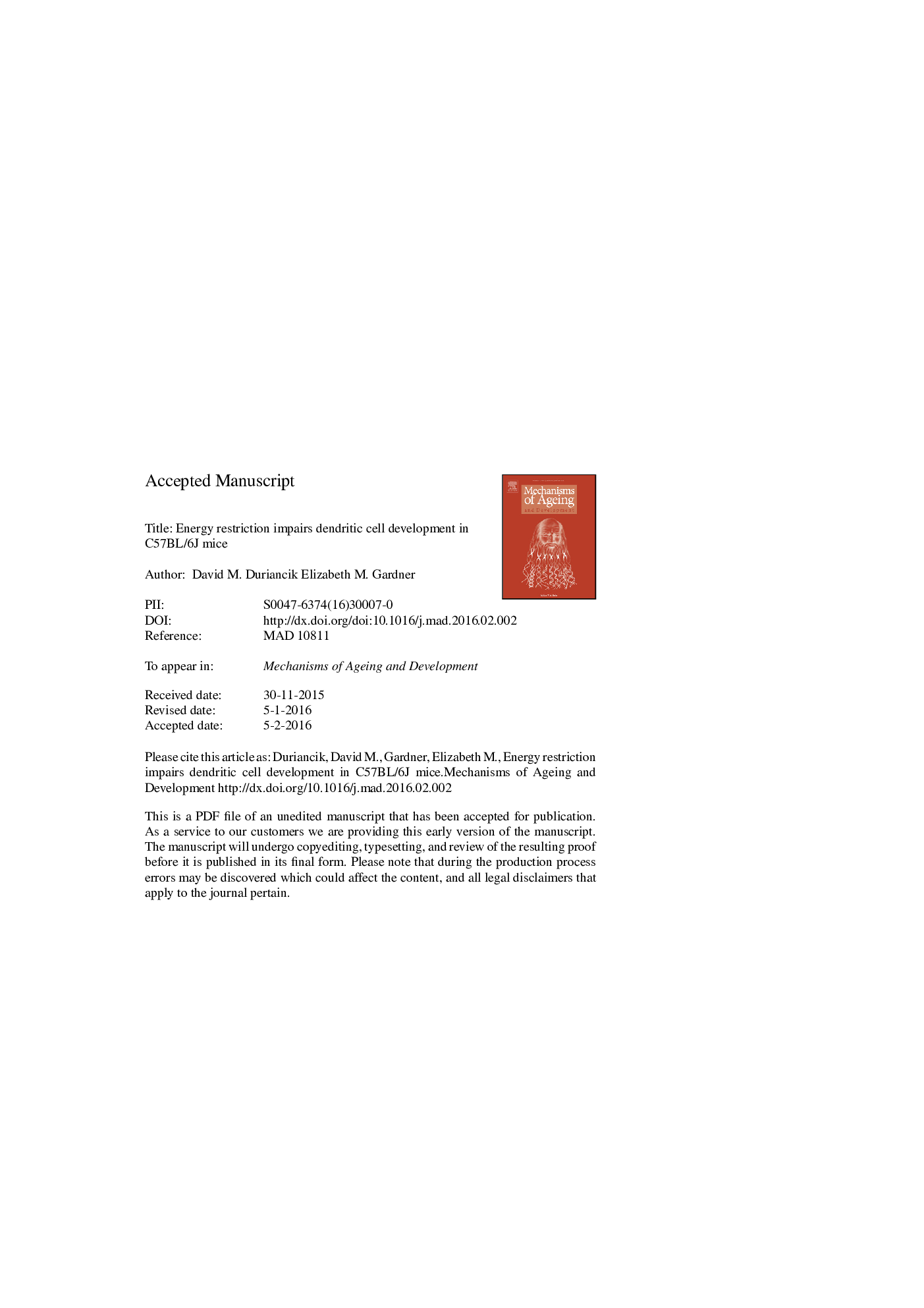| Article ID | Journal | Published Year | Pages | File Type |
|---|---|---|---|---|
| 8284774 | Mechanisms of Ageing and Development | 2016 | 43 Pages |
Abstract
Dendritic cells (DC) are antigen-presenting cells known for stimulating naïve T lymphocytes. The sequential stages of DC development from common myeloid progenitors have been elucidated in murine bone marrow. Energy-restriction (ER) is a pro-longevity dietary intervention with mixed immunological outcomes. The objective of this study was to examine the development of DC in adult C57Bl6J mice fed a 40% ER diet. We observed increased myeloid progenitors, but decreased common DC progenitors, precursor conventional DC and plasmacytoid DC. Furthermore, we observed increased macrophages and cells expressing CD169 in the bone marrow of ER mice. There was no significant difference in DC subsets from unfractionated ER and ad libitum-fed murine bone marrow samples cultured in GM-CSF-supplemented media or Flt3L-supplemented media. Examining rates of proliferation with 6Â h BrdU incorporation and Ki-67 staining showed these DC progenitor populations have different proliferation rates in ER compared with AL mice. We show here, for the first time, ER results in altered myelopoiesis resulting in reduced DC development but enhanced monocyte/macrophage development in steady-state C57Bl6J mice. In conclusion, these data may partially explain prior observations of impaired early innate immune responses to primary infection such as influenza in ER mice.
Keywords
PDCPMNGM-CSFSDF-1αMDPmTORCDCCDPFlt3Lfms-like tyrosine kinase 3 ligandMFIgranulocyte-macrophage-colony stimulating factornatural killerad libituminterferonIFNBrdUbromodeoxyuridineCellular developmentSteady-stateDendritic cellPlasmacytoid dendritic cellconventional dendritic cellDendritic cellsmononuclear phagocyte systemmedian fluorescence intensityMacrophagesmajor histocompatibility complexMHCEnergy restrictionMonocytesMPspolymorphonuclear neutrophilmammalian target of rapamycinrecombinant murine
Related Topics
Life Sciences
Biochemistry, Genetics and Molecular Biology
Ageing
Authors
David M. Duriancik, Elizabeth M. Gardner,
